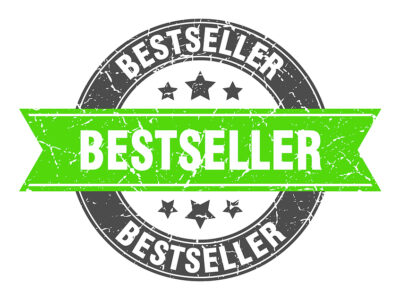Today, glance through a potpourri of book releases, important dates, and defining events that make up book publishing in general and Christian publishing specifically. Not all the books or events are “Christian” in nature, but their presence created historical markers to give perspective. (I stopped at 2010 since events and books take time to become true historical markers.)
1440 – German Johann Gutenberg invents movable type by developing foundry-cast metal characters and a wooden printing press
1455 – Gutenberg printed his first book, a Latin Bible
1611 – King James Version (KJV) of the Bible first published
1798 – Thomas Nelson Publishers founded in England
1828 – American Dictionary of the English Language (Noah Webster)
1859 – A Tale of Two Cities (Charles Dickens)
1869 – War and Peace (Leo Tolstoy)
1870 – Revell Publishing founded by Fleming H. Revell, the brother-in-law of Dwight L. Moody
1873 – Charles M. Barnes started a book business from his home in Wheaton, Illinois
1875 – David C. Cook Publishing founded
1880 – Ben-Hur: A Tale of the Christ (Lew Wallace)
1885 – Adventures of Huckleberry Finn (Mark Twain)
1891 – Broadman & Holman (B&H) Publishing founded
1894 – Moody Publishers founded
1902 – The Tale of Peter Rabbit (Beatrix Potter)
1908 – Anne of Green Gables (Lucy Maud Montgomery)
1911 – Eerdmans Publishing founded
1917 – William Barnes (son of Charles, see 1873)) founded Barnes & Noble with G. Clifford Noble
1926 – The Book-of-the-Month Club was founded
1931 – Zondervan Publishing founded
1936 – Gone with the Wind (Margaret Mitchell)
1937 – The Hobbit (J.R.R. Tolkien)
1938 – Our Daily Bread founded
1939 – The Grapes of Wrath (John Steinbeck)
1939 – Baker Publishing founded
1941 – Christian Literature Crusade founded
1945 – Guideposts founded
1947 – The Diary of Anne Frank (Anne Frank)
1947 – InterVarsity Press founded
1949 – Kregel Publications founded
1950 – The Lion, the Witch and the Wardrobe (C.S. Lewis)
1952 – Charlotte’s Web (E.B. White)
1956 – Bethany Fellowship Publishers founded (later renamed as Bethany House Publishers)
1957 – The Cat in the Hat (Dr. Seuss)
1960 – To Kill a Mockingbird (Harper Lee)
1962 – A Wrinkle in Time (Madeleine L’Engle)
1962 – Tyndale House Publishers founded
1964 – Charlie and the Chocolate Factory (Roald Dahl)
1969 – The Very Hungry Caterpillar (Eric Carle)
1973 – New International Version (NIV) of the Bible first published
1974 – Harvest House Publishers founded
1975 – NavPress founded
1975 – Strang Communications (Charisma House) founded
1978 – Christian Book Distributors founded (now christianbook.com)
1979 – Crossway Books founded
1979 – Love Comes Softly (Janette Oke)
1983 – New King James Version (NKJV) of the Bible first published
1985 – This Present Darkness (Frank Peretti)
1989 – The 7 Habits of Highly Effective People (Stephen R. Covey)
1992 – The Five Love Languages (Gary Chapman)
1994 – Amazon.com founded
1996 – Left Behind (Jerry B. Jenkins & Tim LaHaye)
1996 – New Living Translation (NLT) of the Bible first published
1997 – Harry Potter and the Philosopher’s Stone (J.K. Rowling); Sorcerer’s Stone in US
1999 – Self-publishing on the Internet began
2002 – The Purpose Driven Life (Rick Warren)
2003 – The DaVinci Code (Dan Brown)
2004 – The Steve Laube Agency founded
2004 – Jesus Calling (Sarah Young)
2007 – The Shack (William P. Young)
2007 – Amazon released Kindle for eBooks
2008 – English Standard Version (ESV) of the Bible first published










